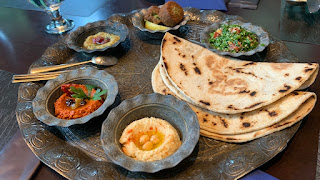Japan, renowned for its rich culture, vibrant cities, and exquisite cuisine, has long been a dream destination for travelers worldwide. However, for Muslim visitors, navigating the culinary landscape of Japan can pose a unique challenge due to the prevalence of non-halal ingredients and cooking practices. Despite this, Japan has made significant strides in accommodating the dietary needs of Muslim visitors, offering a growing array of halal food options across the country.
Halal Food in Japan: A Rising Trend
In recent years, Japan has witnessed a surge in demand for halal-certified products and services, driven primarily by the increasing number of Muslim tourists and residents in the country. Recognizing this demand, Japanese businesses have responded by offering a diverse range of halal options, particularly in major cities and tourist hubs. Many halal food restaurants, halal online grocery stores, and halal food-providing shops have been developed. This eases Muslims to find online halal food shops and halal restaurants.
Tokyo: A Hub of Halal Cuisine
Tokyo, Japan's bustling capital, stands out as a hub for halal food options. From traditional Japanese eateries to international cuisines, the city boasts a variety of establishments catering to Muslim dietary restrictions. Areas like Asakusa, Shibuya, and Shinjuku are dotted with halal-certified restaurants, serving everything from sushi and ramen to chicken curry and chicken curry and kebabs.
One notable establishment is Ginza Halal Food, located in the upscale district of Ginza. This restaurant specializes in authentic Japanese cuisine prepared with halal-certified ingredients, ensuring Muslim visitors can indulge in local delicacies without compromising their dietary beliefs.
Kyoto: Halal Dining Amidst Cultural Splendor
Kyoto, with its serene temples, picturesque gardens, and rich cultural heritage, offers Muslim visitors a chance to savor halal food amidst its timeless beauty. While halal options may be more limited compared to Tokyo, several restaurants in Kyoto cater to Muslim dietary requirements.
Makanai Kyoto Halal Food, situated near the iconic Kiyomizu-dera Temple, is a standout choice for Muslim travelers seeking halal-certified Japanese cuisine. From bento boxes to udon noodles, the restaurant offers a delectable selection of dishes crafted with halal ingredients, ensuring a memorable dining experience in the heart of Kyoto.
Osaka: Fusion of Flavor and Tradition
Osaka, renowned as Japan's culinary capital, is a paradise for food enthusiasts of all backgrounds, including Muslims. The city's vibrant food scene blends traditional Japanese flavors with international influences, offering a diverse array of halal options to suit every palate.
Osaka Ohsho, a popular chain specializing in gyoza (dumplings), features halal certified places across the city, allowing Muslim visitors to indulge in this beloved Japanese dish without reservation. With its commitment to quality and authenticity, Osaka Ohsho exemplifies the fusion of flavor and tradition that defines halal dining in Osaka.
Beyond the Urban Landscape
While major cities like Tokyo, Kyoto, and Osaka offer ample halal dining options, Muslim visitors exploring rural Japan need not fret. Many ryokans (traditional Japanese inns) and ryotei (traditional Japanese restaurants) are willing to accommodate halal dietary requirements upon prior request. Additionally, supermarkets and convenience stores in tourist areas often stock halal-certified snacks and ready-to-eat meals, providing convenient options for Muslim travelers on the go.
Halal Tourism Initiatives
Recognizing the importance of catering to Muslim travelers, various organizations and government bodies in Japan have launched initiatives to promote halal tourism and enhance the overall experience for Muslim visitors. These efforts include training programs for restaurant staff on halal food preparation, certification schemes to ensure compliance with halal standards, and marketing campaigns to raise awareness of halal-friendly establishments.
Conclusion: Embracing Diversity Through Cuisine
In conclusion, Japan's evolving halal food scene reflects the country's commitment to embracing diversity and welcoming visitors of all backgrounds. From the bustling streets of Tokyo to the tranquil temples of Kyoto, Muslim travelers can explore Japan's cultural treasures while savoring delicious halal cuisine that respects their dietary beliefs. As Japan continues to embrace halal tourism, the culinary journey for Muslim visitors promises to be both enriching and fulfilling, showcasing the universal language of food in fostering understanding and connection across cultures. Whether enjoying a bowl of ramen in a bustling izakaya or savoring sushi overlooking Mount Fuji, halal food in Japan invites Muslims to embark on a culinary adventure that celebrates both tradition and innovation in equal measure.

Comments
Post a Comment